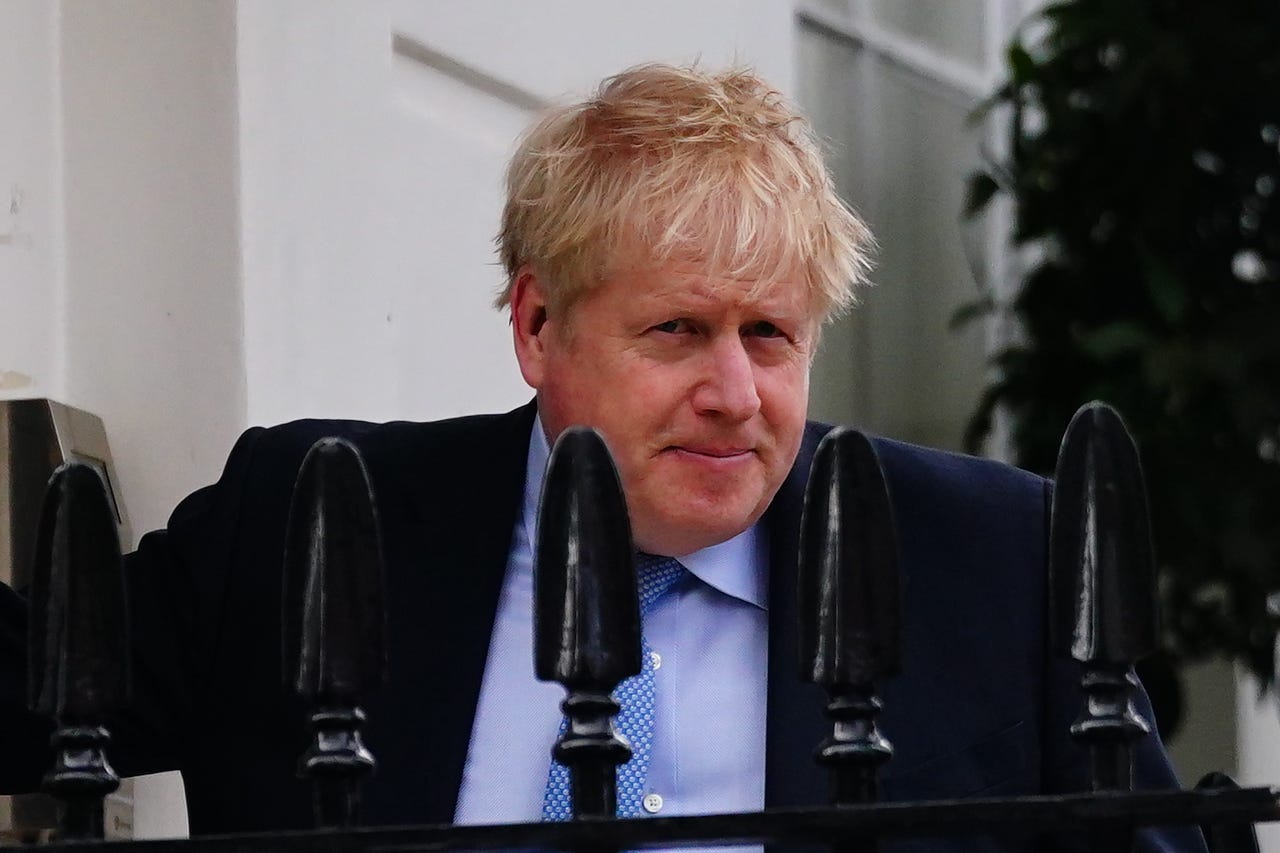Boris Johnson’s removal has cleared the way for better Brexit relationship, Michel Barnier says
The EU’s former Brexit chief negotiator calls for closer ties as polls show British public think Brexit has failed, writes Jon Stone


A closer Brexit relationship is possible now Boris Johnson has been removed as prime minister, Michel Barnier has said – as polling on the seventh anniversary of the referendum shows voters believe Britain's exit from the EU isn't working.
Just one in three voters now think leaving the EU was a good idea, while four in five say that Britain should develop tighter links with Brussels, the surveys show.
It comes as Gina Miller, one of the leaders of the Remain campaign, set out a three-year blueprint for how Britain could rejoin the bloc, while Tony Blair's think tank has spelled out 10 areas where a closer economic relationship could take shape.
In an extraordinary statement as he quit as an MP two weeks ago, Mr Johnson claimed he was the victim of a witch hunt designed to drive him from parliament as “the necessary first step” to reversing Brexit.

Now writing exclusively in The Independent, Mr Barnier, who led Brexit negotiations for the EU, says Brussels would be willing to build a closer relationship “in key sectors where Mr Johnson refused to negotiate”.
Mr Barnier – the face of the EU during talks over Britain’s exit – writes that Brexit “remains a lose-lose situation both for the European Union and the United Kingdom”.
Praising Rishi Sunak’s rapprochement with Brussels, the ex-chief said the PM has chosen “pragmatism over dogmatism” by resolving the Northern Irish border issue, and suggested tighter cooperation in areas like defence, security, and development.

But he also dismissed suggestions that blockages to trade could be resolved without membership of the single market or customs union – dashing hopes of some British businesses that have struggled under the new arrangements.
Friday’s report from the Tony Blair Institute for Global Change suggests that the UK government should voluntarily align with a host of EU rules – building up to a full review of the Brexit trade deal with the EU in 2026.
Brussels last week ruled out changing its trade agreement with Britain before that date amid calls from UK businesses to cut red tape immediately or face an exodus.
While Mr Blair’s think tank stops short of advocating a full customs union with Europe, it goes further than the policy proposed by Labour leader Keir Starmer, putting the opposition under more pressure to show off its pro-European credentials.
Labour this week said it was “pragmatic” on Europe, but reiterated that it would not be seeking to rejoin either the single market or customs union.
But Sir Keir’s party is now being urged by Mr Blair's outfit to move into the “substantial political space” now available for a closer relationship with Brussels.
A survey of 1,525 adults conducted by Deltapoll at the start of June shows that 53 per cent of all voters think the UK was “wrong” to leave the EU, and 78 per cent would support a closer relationship in the future.
It tallies with similar polling conducted by FindOutNow, which found that 52 per cent of people believe Britain was wrong to leave, against 30 who think it was right.
“Our polling shows that there is a large majority of the British public who recognise that Brexit in its current form isn’t working and would like to see the UK moving closer to the EU,” said Anton Spisak, head of political leadership at the Tony Blair Institute.
“This creates a substantial political space to move the debate forward from refighting the old battles about whether Brexit was right or wrong, to discussing what an improved future relationship with the EU should look like.”
Mr Spisak said it was “absurd” that the bloc had “deeper trading arrangements with Israel and Georgia, better regulatory recognition on food-safety standards with Canada and New Zealand, and deeper mechanisms for political co-operation with nations including Australia and Japan” than with Britain.
Yet Mr Barnier – who in his retirement still acts as an unofficial outrider for the European Commission – warned that side treaties could only go so far in smoothing Britain’s relationship with the bloc.
“As long as the United Kingdom, as it has chosen to be, remains out of the single market and the customs union, there will be barriers in our trade and economic relationship,” he said.
“During the negotiations, the EU clearly stated that cherrypicking the benefits of the single market would be unacceptable. That it would weaken our single market. That is still the case today – whether we are talking about financial services, or rules of origin.”
He added: “We must remain pragmatic and tell each other the truth as I constantly did throughout the negotiations. Progress is possible.
“Brexit treaties can be complemented by other treaties in key sectors where Mr Johnson refused to negotiate. I am thinking of security, defence, or cooperation over development matters.”
Mr Barnier’s mention of rules of origin is significant because it is this area of regulation which has most spooked UK carmakers – who last month warned their operations could become unviable thanks to Brexit bureaucracy.
The rules – standard for countries not in a customs union together – require a certain proportion of a car’s parts to have to be made in the UK or EU to avoid tariffs – a headache for complex global manufacturing supply chains such as car-making.
Also writing in The Independent, Ms Miller, who led the legal challenge that prevented the government from leaving the EU without a vote of parliament, said it was time to think about re-joining the bloc.
“I was hopeful that the difficult task ahead of our elected representatives would be logically and sensibly managed. But the various ministers and prime ministers can only trot out empty soundbites,” she said.
Now standing as a parliamentary candidate for Epsom and Ewell as the leader of her own True and Fair Party, Ms Miller says that “leaders of all parties to listen to the public and join together on the path to rejoining the EU”.

She has spelled out the legal process required – from triggering Article 49 to green-lighting by the European Council – in a bid to spark a conversation that is currently absent from mainstream politics.
“Real democracy in action would see parties place in their manifestos the ambition to rejoin the EU, thus providing the mandate required to act in our best interests,” she said.
“After seven years of failure, now we need to pull the rip cord and rejoin the EU.”
In response to the poll results, former cabinet minister Jacob Rees-Mogg said: “Brexiteers don’t mind a close, friendly relationship with the EU as long as we don’t take its laws.”
He added: “As polls before the vote indicated remain would win these figures show almost no change. What is interesting is how stable public opinion has been.”
Tobias Ellwood, a former Tory minister who campaigned for Remain but argued in the wake of the vote that the result had to be respected, said: “Ever fewer people (including those voted to leave the EU) believe this model of Brexit is good for Britain. Economically we are paying a high price for our model of Brexit. But it’s now such a toxic subject neither Conservative nor Labour are willing to address it. It’s time to put the nation first. “
Lord Mann, who backed Brexit, said he was “not surprised” many Leave voters had changed their minds. He accused the government of putting an “obsession” with trade deals above protecting and developing British industry.







Join our commenting forum
Join thought-provoking conversations, follow other Independent readers and see their replies
141Comments